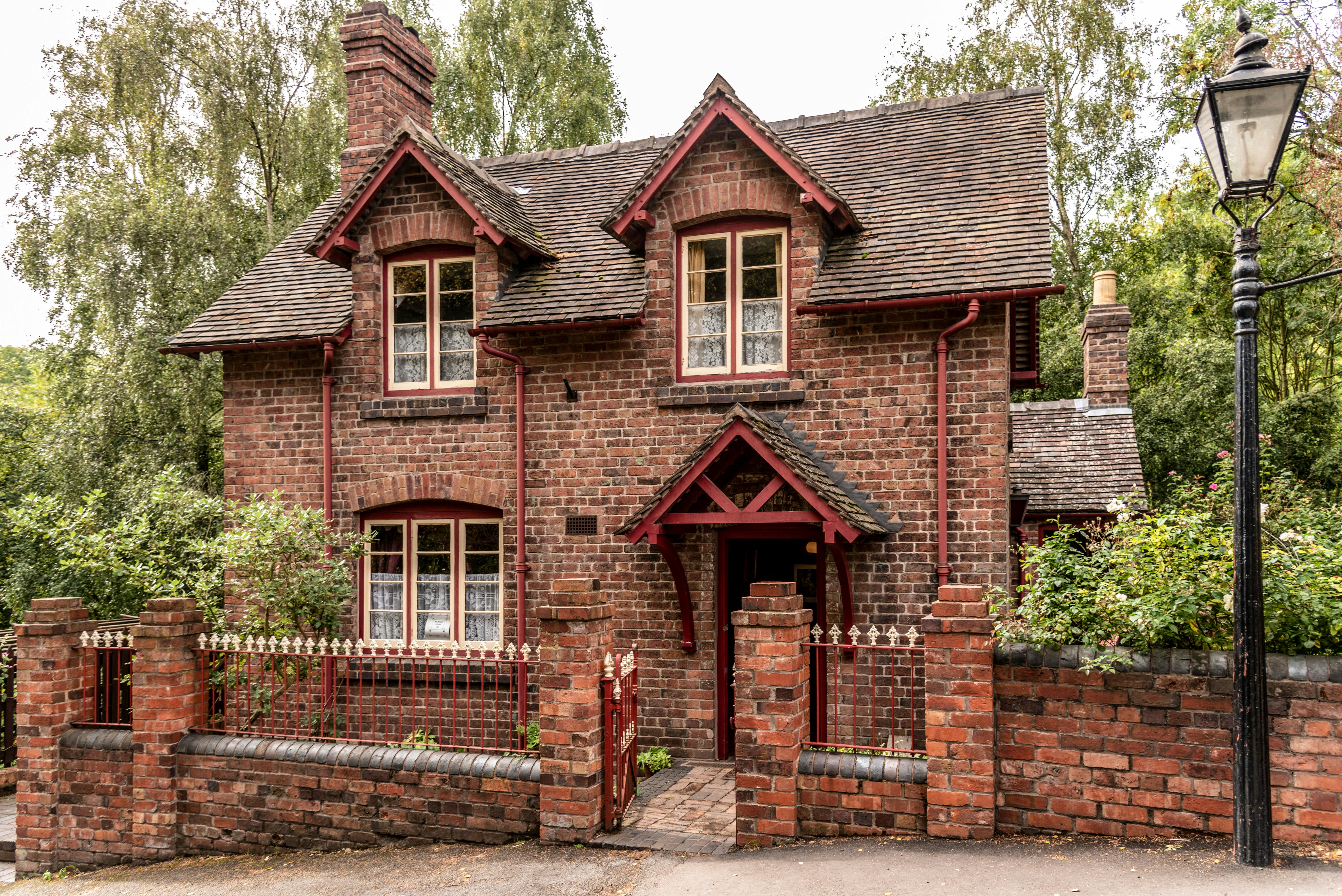Is Home Insurance Mandatory? Our Expert Guide Explains
Discover the kind of home insurance you need and how to find the best option for your situation.
Updated:
When you purchase through links on our site, we may earn an affiliate commission. Here's how it works.

Home insurance can help you protect one of the biggest investments you’re likely to make and recoup the value of your precious belongings. But is home insurance mandatory? If you’re buying your first home, becoming a landlord, or renting, it can be confusing to determine what insurance you’re supposed to have or what might be a helpful extra.
Understanding your needs can help you choose the best home insurance without paying too much. In this article, we explain what kind of home insurance you must have (and when), what home insurance covers and what you should consider adding so you’ve got the best protection in place.
Key takeaways
- Home insurance isn’t mandatory in legal terms, but it’s an important part of protecting your property and belongings.
- Home insurance can help you avoid huge costs in the event of damage or destruction.
- If you take out a mortgage, your lender will likely require you to have buildings insurance.
- As a landlord or tenant, you may want to take out specific insurance to cover your circumstances.
Is home insurance mandatory in the UK?
The simple answer is no—home insurance isn’t mandatory in a legal sense.
However, your mortgage lender may require you to take out a home insurance policy before disbursing funds. Plus, for your peace of mind and future financial security, it’s also a good idea to have some form of home insurance.
Why is home insurance advisable?
While it’s easy to think disasters will never happen, adverse weather, fire, flood, and malicious events such as theft are always possibilities.
A home insurance policy can help you manage both the cost and the emotional toll of disasters by ensuring you’ve got a roof over your head and replacement belongings without an unmanageable bill. The last thing anyone wants to think about after their home or belongings are damaged or destroyed is how to pay for everything.
Types of home insurance in the UK
When deciding on home insurance, it’s important to understand the different types available. These include:
Buildings insurance
Buildings insurance covers the physical structure of your property, as well as any installed fixtures, such as fitted kitchens and bathrooms, a boiler, and electrical sockets.
Contents insurance
Contents insurance covers personal belongings, fittings like shelves or window blinds, and furnishings inside your home. In some cases, possessions taken outside the house, such as laptops or phones, are also covered.
Combined home insurance
Combined home insurance covers both buildings and contents in one policy. This arrangement is usually cheaper than buying them separately.
What do home insurance policies cover?
Home insurance usually covers the repair and rebuilding of your home (buildings insurance) or the replacement of your belongings (content insurance) in the following situations:
Theft
If someone breaks into your home, you’ll be reimbursed for replacing stolen items. Even without a forced break-in, this type of insurance may cover something stolen while you’re out and about.
Extreme weather
Your insurance covers you if a storm, flood, or other extreme weather damages your home. Typical damage can include a fully or partially destroyed roof or loss of personal belongings or furnishings.
Fire
You can also claim for fire damage, smoke damage, or destruction to your home and possessions.
Subsidence
If subsidence (ground settling and sinking) occurs but has never affected your home before, you can usually claim the cost of damage. When you purchase your insurance, you must declare if this has previously been an issue.
Burst pipes
Also known as ‘escape of water,’ flooding from burst pipes can cause damage to your home and belongings and is typically covered by your insurance.
Accidental damage
Accidental damage cover isn’t included in all policies, but if not, you may be able to add it as an extra. It will cover you for accidents like spillages or breakages within the home.
What happens if I have no home insurance?
With no home insurance, you’ll likely be responsible for the full cost of repairing or rebuilding your home if it’s damaged or destroyed. You’ll also need to replace your belongings, like clothing and electronics. When everything’s added up, it could cost potentially hundreds of thousands of pounds—or more.
If you take out a mortgage when buying your home, your lender likely won’t release the funds unless you provide evidence that you have enough insurance to cover repair or rebuilding costs.
Do I need separate buildings insurance?
There’s no specific legal requirement to have buildings insurance. However, it’s usually cheaper to purchase buildings and contents insurance together. In some scenarios, such as a landlord with a property that doesn’t contain their own furniture, they may prefer to get building insurance separately.
Do I need home insurance if I take out a mortgage?
Buildings insurance is usually a requirement if you’re taking out a mortgage. That’s because your home is the collateral or security for the lender that provides a loan. If you fail to repay the loan, the lender can take possession of your home as payment instead. So, it’s in their interest to ensure the home remains standing and in good repair.
The requirement to hold buildings insurance applies whether you’re a resident owner or a landlord.
Do I need home insurance if I’m a landlord?
As a landlord, the same requirement to get buildings insurance applies if you want to take out a mortgage. Your tenants, however, will be responsible for arranging their own contents insurance to protect their belongings. You also have the option to take out landlord insurance, a specialist type of buildings insurance.
Landlord insurance usually covers the structure of your property, as well as fixtures and fittings. It will also reimburse you for lost rent in several situations: a disaster that requires your tenants to move out, property damage by tenants, and a tenant lawsuit for injury on the property.
You should also ensure adequate contents coverage for furnished apartments and/or personal items on the property.
Is home insurance mandatory if I am renting?
As a renter, your landlord should cover buildings insurance, but you may want to check the details. Regardless, you should take out your own contents insurance to cover your personal belongings. You might prefer to take out a specific tenants’ insurance, which covers accidental damage to items belonging to the landlord, such as furnishings or the property itself.
Do I need home insurance if I own a flat?
If you’re buying or already own a flat, the block’s freeholder may already have buildings insurance to cover the entire premises. In this case, you don’t need to buy it separately. However, you’ll need separate contents insurance to ensure your belongings are covered.
How to get a home insurance quote
To get a home insurance quote, you‘ll need to share some information about your property. Typical details include the age of the building, number of bedrooms and bathrooms, security measures, roofing materials, and proximity to risks like flooding. These answers will help the insurer calculate the likelihood of a future payout and how much you should pay for your cover.
You may be able to adjust the amount of excess you’re willing to pay to lower the monthly or annual premium cost. You should also consider whether you want to add extras to your plan.
FAQs
Do you legally have to have home insurance?
No, you don’t need to buy home insurance by law. However, your lender may require buildings insurance if you want to take out a mortgage. In general, it’s advisable to have some type of home insurance to cover your building, your contents, or both.
Can you get a mortgage without buildings insurance?
Most mortgage lenders insist that you must have buildings insurance before they will release the loan to make the exchange of contracts possible. For this reason, you usually can’t get a mortgage without buildings insurance in place.
What happens if you don’t have home insurance?
If you don’t have home insurance, you’ll be liable for any costs incurred if your home is damaged or destroyed, including structural damage and damage to or loss of personal belongings.
